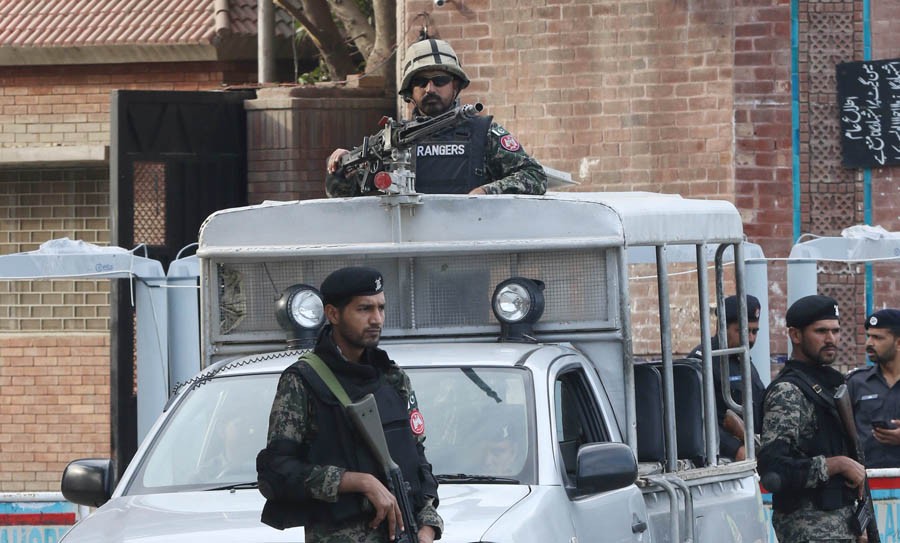
What do we achieve by hosting the PSL final in Lahore, given the current security crisis?

Come March 5 and a lot of hair pulling would have gone into answering the big question: What do we achieve by hosting the PSL final in Lahore, given the security crisis we are facing?
The optimistic, politically driven replies in a ‘fictional’ PCB boardroom are not hard to imagine: We’d have provided ‘much needed entertainment’ to a cricket-starved nation, and proved to the world that we are a proud nation, that we can take care of its security in spite of the evil ploys of India’s spy agency.
Whatever the message might be, the news channels have chewed it up and excreted it in its complete repugnance: Footage of "zinda-dillaan-e-Lahore" standing in front of the Bank of Punjab branches for hours to get their tickets, hugged by enthusiastic reporters urging them to shout ‘Pakistan Zindabad!’ which makes little sense considering that there are no immigrants or foreign audiences to alienate amongst the television audience, and that the match happens to be between Quetta and another city of the same country.
But we have seen it all before, haven’t we? This rampant, nonsensical use of rhetoric for purposes both ambiguous and unachievable. We are chasing what we know we shall never truly achieve. For the decision-making status quo, it’s a chance to garner the lasting loyalty of the masses. For the masses, it’s the envy of the neighbouring nations or a temporary suspension of disbelief that Pakistan is amazing and the world is going to realise it.
As with all events important and life-threatening, President Mamnoon Hussain shall be representing the status quo, the rest taking a day off to tweet about the match amid reassuring reports that the sound (God forbid!) heard outside the Gaddafi Stadium was that of a tire burst, Alhamdulillah.
For the safety of the President as well as the 22,000 others who shall be making their way to the Stadium with rekindled connections with their religious faith, a five-layer security plan spearheaded by the Army has been drafted especially for the event, with news reports clearly stating that the authorities shall assume control of the venue one day prior to the match just in case any potential perpetrator wishes to conveniently drop off their payload before the men in uniform show up.
This brings me back to the original question: Is it all truly worth it? Are we doing all this to prove to that net café owner from Kolkata who messages, "Sachin is God!" and "You don’t even have cricket in Pakistan!" on all Pak-related cricket videos on YouTube? Is shutting him up all that important compared to our collective welfare? It must be, because I am quite certain no one else really gives a damn.
Whereas any decent cricket match shall have been forgotten in a matter of weeks if not days, any untoward incident will prove decisive for the country’s cricketing future. Even a failed attempt to sabotage the event could add another half a decade or so to the current moratorium on international cricket on domestic ground.
What is most striking is how the authorities have failed to pay heed to the impressive collection of security literature that identifies the viability of stadiums for terrorists under the rationalist choice theory of terrorism, which postulates that the actions of terrorists are usually decided by cost-benefit calculations. A common theme in an analysis of commercial drones and their potential use by terrorists revolves around a stadium full of people, an 800-dollar drone from an e-commerce website, and a small, easily accessible chemical payload. The potential results are frightening.
Are we so naïve and so blinded by our deep conditioning that we fail to see how we as a nation constantly go into battles which we are not equipped to fight? Gaddafi can live without its old tenant, the average Pakistani, for a little while longer.